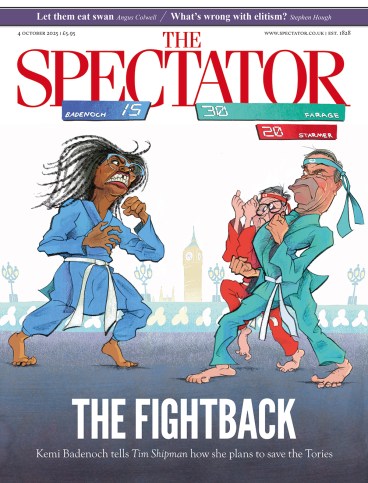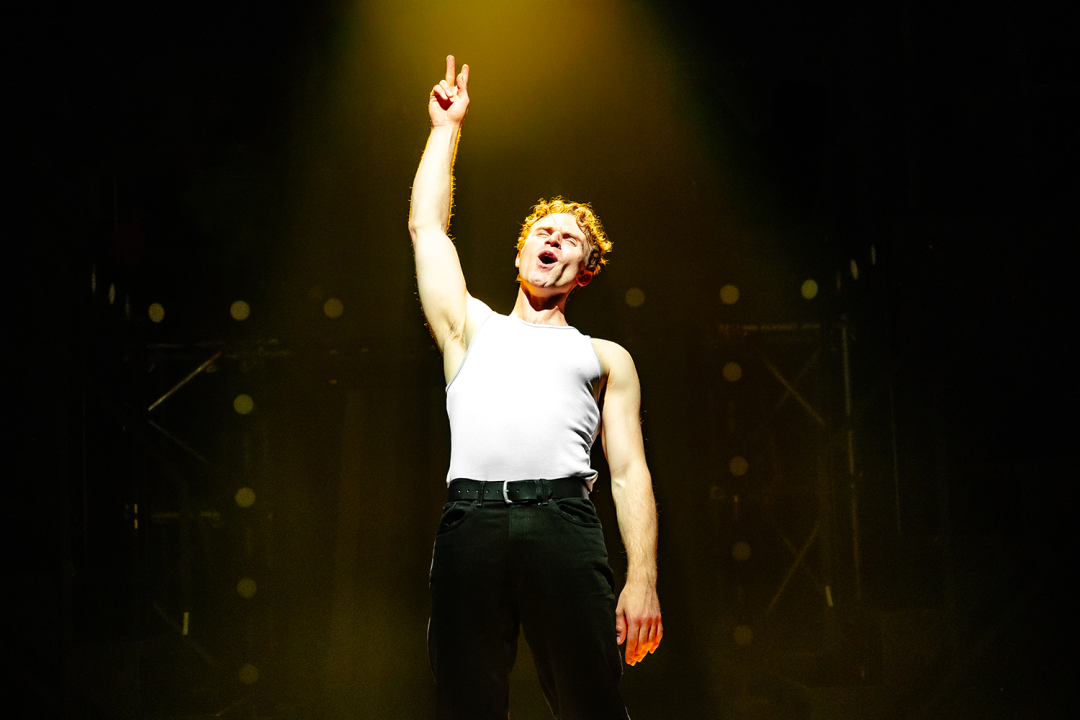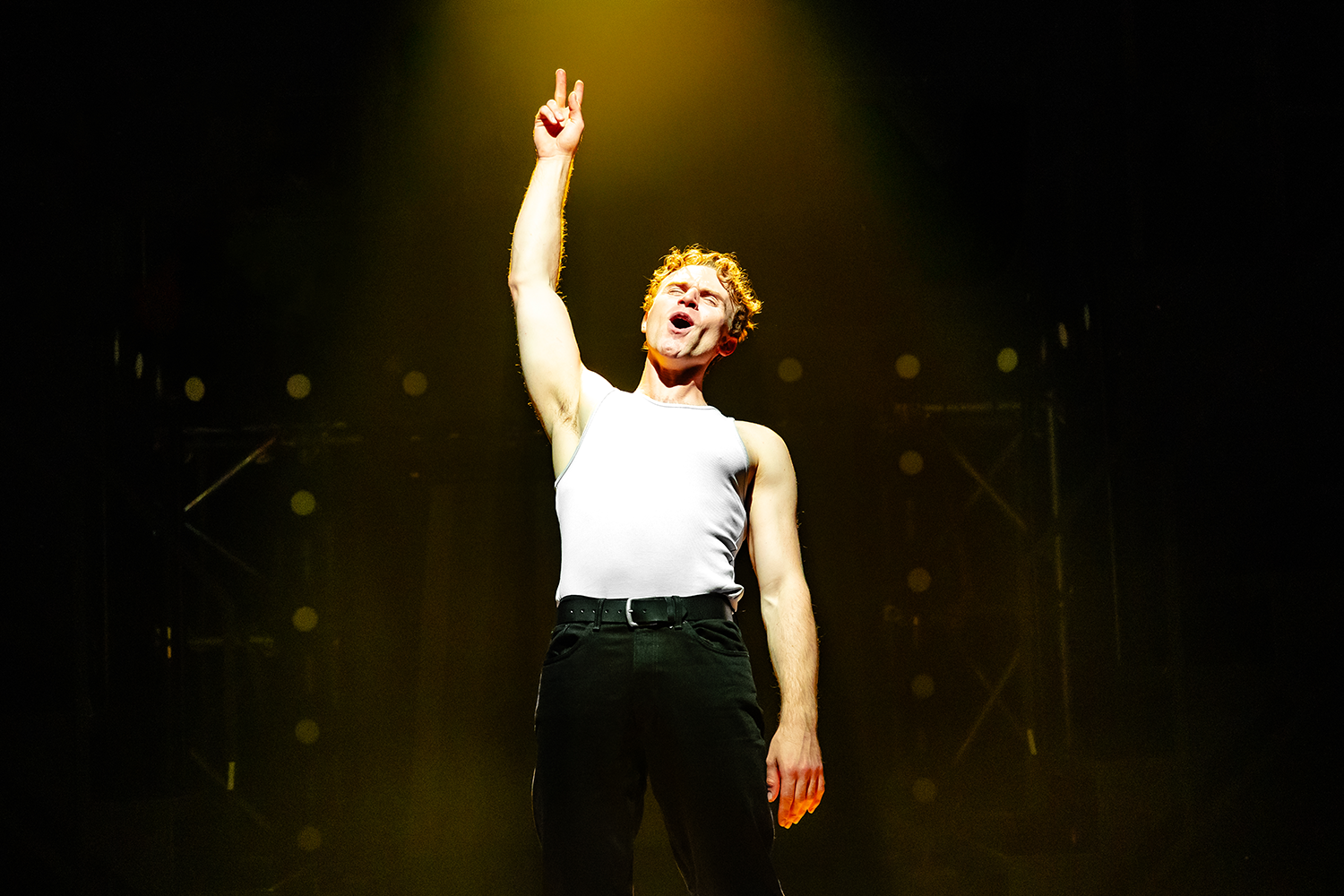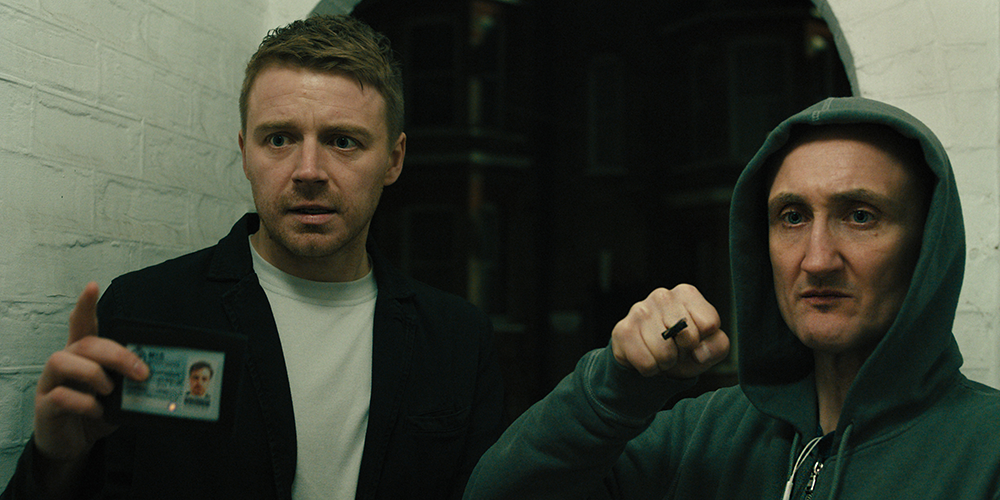
Clarkston is an American-backed production featuring a Netflix star, Joe Locke. He plays a young graduate with a terminal illness, Jake, who works at a Costco warehouse in a failing midwest town. Jake is a brainbox with an IQ of 140 who takes a scholarly interest in early American history. On his first day at work, he befriends a bookish intellectual, Chris, who loves literature and wants to dazzle the world with his fiction. The entry requirements for this branch of Costco seem to be tougher
than Harvard’s.
The romance between the two boys is impeded by Jake’s clingy mum, Trisha, who feeds her meth habit by stealing his money and forbids him to leave town. Chris would have escaped from his mother ages ago but the playwright, Samuel D. Hunter, needs him to provide material for the story. Trisha, Jake and Chris chase each other around in circles, bickering, gossiping, mouthing banalities and screaming obscenities. They’re like three versions of the same emotionally crippled halfwit. And although their problems are laughably small, they can’t find solutions because they lack initiative or common sense. ‘It’s a terrible time to be alive,’ mopes one of them. ‘There’s nothing left to discover.’
Jake and Chris, who are deeply shy, like to snatch kisses in the Costco warehouse but it’s an unsavoury location, full of ugly shelving units and weird ventilation tubes that resemble black maggoty snakes. Instead, they repair to a deserted car park nearby which they find delightfully romantic. They sit cross-legged on the tarmac and discuss literature. Jake reads out a few paragraphs from a treatise written 200 years ago by his favourite anthropologist.
Then Chris has a go. He produces his collection of unpublished masterpieces and narrates a tale about the seaside. But he has to stop because Jake is terrified of the seaside. ‘When I was a kid I almost drowned,’ he shudders. When this traumatic flashback is over, Chris continues to read about the seaside. Later, they visit the seaside and complain that it’s dull.
This is not theatre. This is calculated triviality sucking the life out of the West End. No one gives a fig about these pretentious deadbeats and their tiffs and fantasies. The show, however, looks surprisingly good. The actors are stunning specimens. Locke resembles a less menacing version of Jack Palance. His co-star, Ruaridh Mollica, strides around like a male model rather than a warehouse orderly. And Sophie Melville (Trisha) is blessed with the features of a Nordic goddess and the physique of an Olympic swimming champion. And yet she’s playing a junkie who works in a burger joint and eats pilfered hotdogs to make ends meet. A few cosmetic adjustments might help. Could the designer rub some gunk into Trisha’s beautiful white teeth? Might a patina of grease be allowed to mar her angelic coiffure? Would it be sacrilegious to daub a few pimples on to her alabaster cheeks?
The production has received generous notices from critics who prefer not to attack shows that deal with addiction, mental illness and homosexuality. On press night, the viewers coughed a lot. That says it all.
This is calculated triviality sucking the life out of the West End
Harry Wayne Casey, producer of Get Down Tonight, is the brains behind KC and the Sunshine Band. He’s known as ‘the man who invented disco’. In the late 1960s, he was a reluctant hippy who preferred not to consume acid or dope, and who felt alienated by ‘the age of Aquarius’. He didn’t understand why rock bands wanted their followers to get angry and worked up over the state of the world.
Casey preferred to celebrate joy and happiness. He found a back-street recording studio where he spent $600 producing his debut single. It bombed. Later, he moved to Miami where he absorbed the rhythms of Cuban music and gained access to free instruments and recording equipment. When his tune ‘Rock Your Baby’ was recorded by George McCrae, it became a huge hit in America and Europe. Casey was on his way.
The show is a dazzling celebration of the 1970s performed by eight excellent singers and a trio of tight musicians. There are flares, sequins and platform boots galore. But the narrative is too simplistic and it uses a corny device. Casey walks on stage and asks one of the backing singers how he might tell his story. During the ensuing discussion, he accidentally reveals all the details. But we don’t hear enough about his childhood, his family background and his musical training. His ascent to the top of the business happens by magic. In one scene, he’s a part-timer humping boxes around a record store, and the next he’s a multimillionaire in charge of a wildly successful recording business. How did that happen?
The show lasts 80 minutes. Twice as long would be better.









Comments